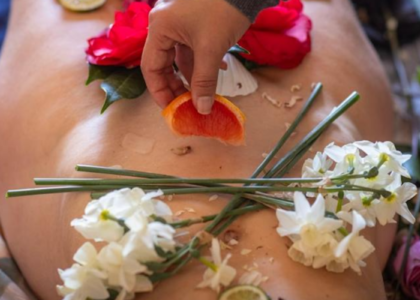“It serves to keep women looking inward and downward, focused on themselves and what they lack, rather than questioning the system that sold them the lie of their scarcity in the first place.”
In this episode we hear an intimate and stunning story from a woman on an LDS (or Mormon) mission.
This story includes discussions of mental health, faith, false appearances, and how the systems around us shape our relationship with our bodies and, due to the sensitive nature of this material, the author of this essay has asked to remain anonymous.
Our Reader
Mary Piccard-Reischmann

Mary Piccard-Reischmann is a theatre artist, illustrator, and podcast enthusiast from St. Petersburg, Florida. She studied English, Spanish, and Communication Design at Washington University in St. Louis and earned her Masters in Humanities from the University of Chicago. She is currently the Scenic Charge Artist for Portland Center Stage and spends her free time going to movies and spending too many hours playing on her Nintendo Switch.
We are grateful to Mary for giving voice to this anonymous essay.
Chasing an Illusion:
How Patriarchy Permeated my Mission
If my husband really wants to annoy me, he’ll call me a lipstick—which is ironic because I’ve only worn lipstick a handful of times in my life. Maybe that’s what he’s getting at, he wishes I’d wear it more. But it’s more than just a playful jab at my lack of make-up, it goes back to our missions. He’s teasing me because that’s what the elders in his mission called the sisters who, like myself, were called to the visitor’s centers. The other, less attractive, sisters were called worker bees. Don’t worry, we’ve had plenty of conversations about how that kind of language is demeaning. He swears he never engaged in such banter, it was the other, less mature, elders. I’ll just have to take his word for it, along with a grain of salt.
But there’s a more unnerving element to the way the elders in his mission discussed and labeled sisters, and it goes far past our missions. It lays bare the way sister missionaries, visitor center sisters or not, are perceived. It’s damaging to all the sister missionaries, and women in the church. It demonstrates the double standard females have to live up to. I knew what everyone expected a visitor center sister missionary to look, act, and be like—and living up to those unattainable standards took a toll on my physical, mental, and emotional health that, in many ways, I’m still grappling with over a decade later.
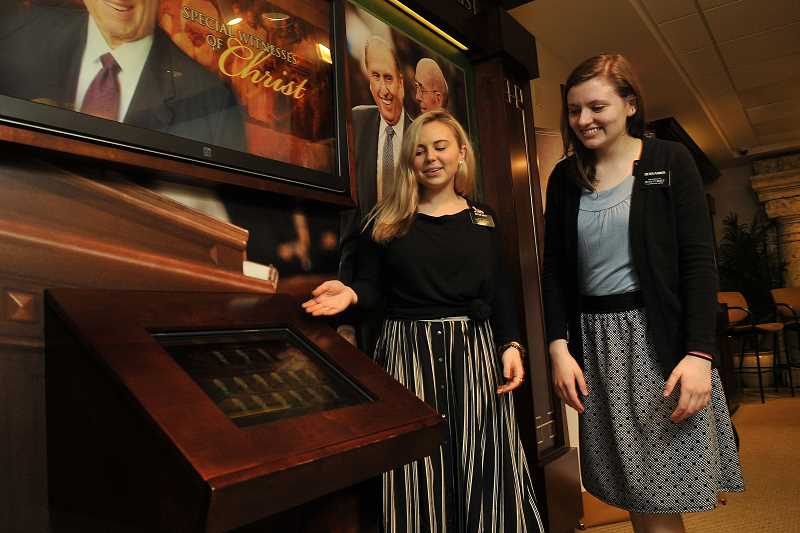
Growing up as a member of the church of Jesus Christ of Latter Day Saints, I’d often hear the phrase “Every young man a missionary” at youth activities or church meetings where the boys were present. We all knew what was expected of the young men—a mission, marriage, college, and a career. To a boy, a mission was a priesthood duty, a rite of passage, an obligation, a privilege. But what about for the girls? A mission was an option, but only if you weren’t able to get married. It was my brothers I pictured going on missions, but never myself. My gender gave me an exemption. I believed that, like my mother and sisters, I would be married well before I reached the age of 21. But we all know what they say about the best laid plans, and my plans for marriage did not materialize. I found myself at age 22 with a college degree and no husband.
The summer after I graduated from college, I found myself at a crossroads. For the first time in my life I had no real plan; the next step I was supposed to take hadn’t been mapped out for me. I was considering graduate school or whether to continue at my current job. A mission wasn’t even on my mind. Until…
To a boy, a mission was a priesthood duty, a rite of passage, an obligation, a privilege. But what about for the girls? A mission was an option, but only if you weren’t able to get married.
One weekend as I was pondering my next move, I happened to be in southern Utah visiting family. During this visit I spent some time with my aunt. She and my uncle had raised eight children—four boys and four girls—all of whom went on missions. I had always looked up to my cousins and admired my aunt, so when she suggested I serve a mission I took it seriously for the first time. I began to think that maybe the reason that sisters went on missions wasn’t because they didn’t have anything else to do, but because they had something unique to offer. And all of my female cousins that had served missions eventually married and had children, so hopefully there would still be plenty of time for me. I realized for the first time it didn’t have to be an either/or prospect. I could serve a mission and still have a family.
With much less consideration than I had given to most other decisions in my life, I enthusiastically filled out my application to serve. I moved back home and waited for my mission call. I still remember the day it arrived and the anticipation I felt as I carefully opened the letter, while surrounded by my family and friends. I was called to the Missouri Independence Mission, with a special assignment to serve at the Liberty Jail Visitor’s Center. In the winter and spring of 1838 and 1839 the first prophet of the church, Joseph Smith, was imprisoned (Mormons believe unjustly) at this jail located in Liberty, Missouri. The prophet and the other men he was imprisoned with suffered from cold, malnutrition, mistreatment, and illness. It was also in this prison that Mormons believe one of the most important revelations in our scriptural cannon was received through the prophet Joseph Smith. The site was purchased by the church and turned into a visitor’s center in 1963. It is used as a tool to teach members and nonmembers alike the importance of perseverance, patience, and how God uses trials to teach us important lessons.
I began hearing from family members and church leaders about what a special place the Liberty Jail was and that I was going to have an exceptional mission. I loved church history and couldn’t believe that I would get to immerse myself in it for a year and a half. Not lost on me were the comments that only the prettiest sisters were called to visitor’s centers because they were expected to represent the church.
On June 3, 2004 I reported at the Missionary Training Center (or MTC, for short) in Provo, Utah. I would spend the next four weeks there, learning the lessons I would teach to people who were not members of the church, as well as receiving training on how to perform my duties as a visitor’s center sister. After my time there I would be sent to Missouri, where I would spend the rest of my mission. On that day I was accompanied by my parents, siblings, and numerous nieces and nephews. I could feel my family’s pride in me, and I didn’t want to let them down. Even though I knew my family would miss me and I would miss them, I was excited for this new adventure. I wasn’t worried or anxious. In fact, I felt like I had the upper hand compared to most other missionaries. I had lived on my own for over three years, attended a large university, and had several different roommates. I was sure that my additional life experiences had prepared me for anything that came my way.
I was ready.
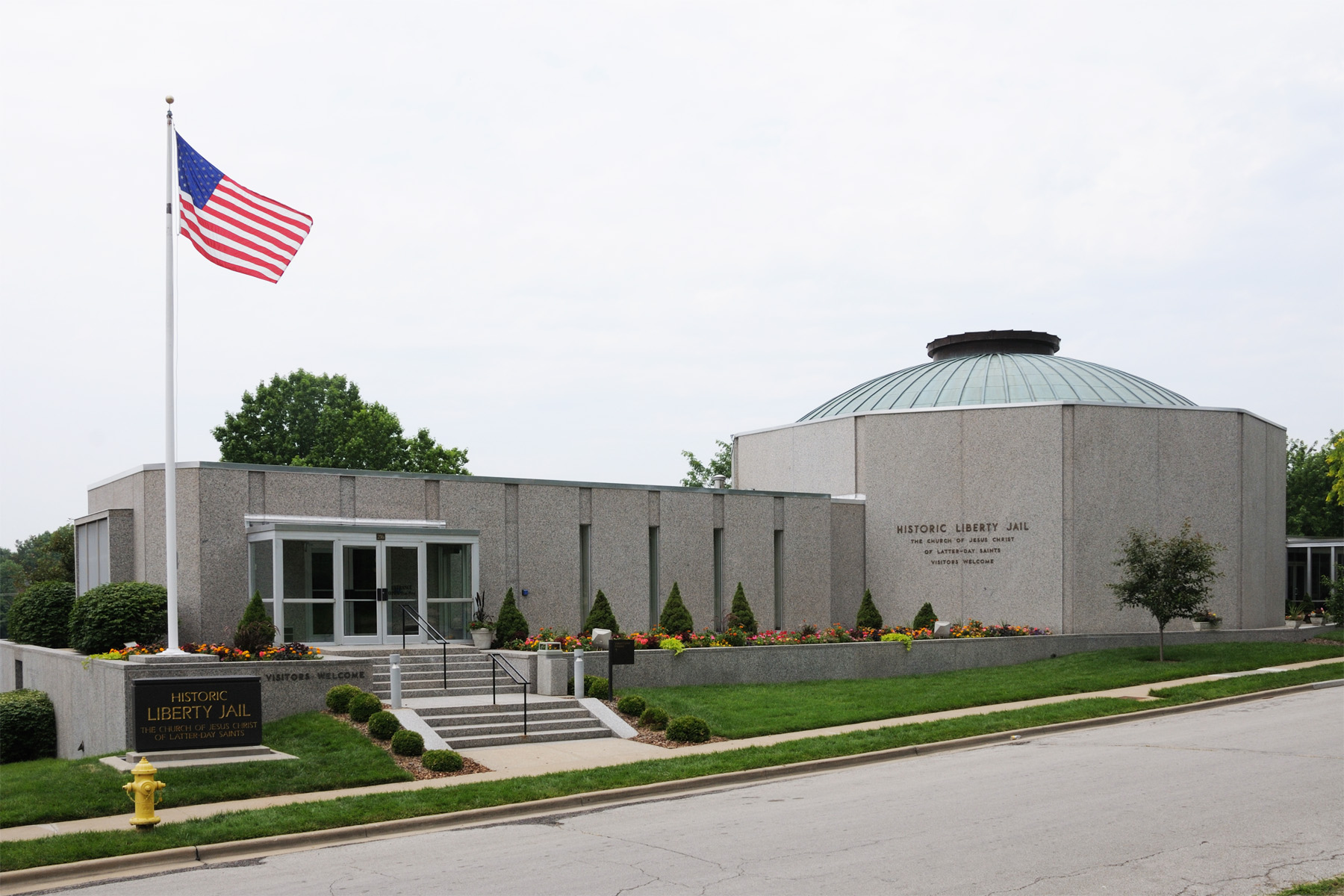
…only the prettiest sisters were called to visitor’s centers because they were expected to represent the church.
I went into the MTC feeling confident about how I looked. I wasn’t overly prideful, but I had recently lost some weight and was feeling physically fit. I enjoyed running and was looking forward to continuing it on my mission—not only as a means to keep the weight off, but as a way to manage my mental health. Immediately upon my arrival, however, I began hearing horror stories of the dreaded MTC weight gain. It happened to almost every sister missionary. We were given three large meals a day and access to all the treats we wanted. There were also care packages that arrived almost daily for someone in our dorm, filled with cookies and candy. I didn’t want to gain back any of the weight I had just lost; I wasn’t about to buy all new clothes, so I started keeping track of everything I ate. I only ate cereal and fruit for breakfast, a salad for lunch, and a small dinner. I kept the desserts at a minimum and used every opportunity to exercise. It was mentally grueling to keep tabs on what I was eating and how much exercise I was getting on top of the stress of being a new missionary. But I was adamant that my physical health and appearance wouldn’t change throughout my mission.
My weight wasn’t the only aspect of my appearance I had to worry about. Because we were going to a visitor’s center there was an additional expectation that the myself and the sisters I was rooming with would have neat hair, make-up, and stylish clothing. I did my best in this area, but I had never been overly concerned about clothing or make-up before. I couldn’t help but notice that while the sisters were offered classes on hair and make-up, the elders were not offered any sort of comparable classes. The sisters were also given the same amount of time in the morning to get ready as the elders, but we had to wash and dry our hair, shave our legs, moisturize, apply make-up, and choose a flattering outfit, all while sharing a bathroom with all the other sisters on the floor.
In the MTC, missionaries are divided into districts—which are groups of missionaries composed of several companionships. Missionaries attend lessons, meetings, trainings, and church services with the other missionaries in their districts. Out of these missionaries, a district leader is selected and given authority over the others…but being a district leader requires the priesthood, which is only given to the males of the church. Although I tried to be compliant (at least outwardly) I found myself bristling at being held accountable to my district leader, this new authority in my life: a 19-year-old boy from Idaho who had just graduated from high school. Looking back, I realize he was probably nervous and felt overwhelmed with the whole experience. He didn’t ask to be in any position of authority, he simply accepted an assignment. But I began to wonder about a system that would favor a male simply for being male, rather than give opportunities based on experience or ability.
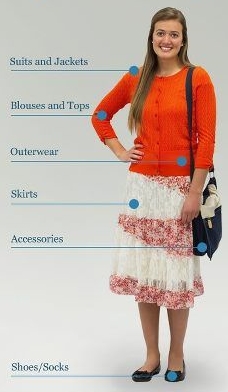
Sometimes, though not very often, it did feel like sister missionaries were either pitied or derided for serving a mission rather than getting married. I remember one day receiving a letter from my best friend. She was excited to tell me that she was expecting a baby. I was thrilled by the news and shared it with my district. One of the elders quipped, “How does it feel to know that she’s home building up Zion while you’re just out here on a mission?” In Mormon terms, building up Zion refers to having children as a way to grow and strengthen the church. Maybe he was joking, but it stung. If I was honest with myself, I did feel like I was second best to the women who were married, who were having children, and maybe the mission was just a desperate attempt to feel valid. It hurt that my pain was so transparent.
The time finally came to leave the MTC behind and go to Missouri. Once again, I felt ready. I was excited to have more independence and to actually do the work instead of just talking about it. And I was sure that all of the struggles I had during my time at the MTC would dissipate when I reached Missouri. Right?
It was a warm day towards the end of July when I arrived in Missouri. Although I was from southern Utah and used to heat, the humidity I felt when I got off the plane was overwhelming. I could feel my make-up running and hoped I wouldn’t sweat through my clothes. I definitely wanted to make a good impression.
The other missionaries and myself were immediately greeted by our mission president and his wife, President and Sister Baxter. The president was tall, with bright blue eyes, a shiny bald head, and a warm smile and handshake. His wife was also quite tall, as well as thin. She was classy looking, with tightly permed hair, perfectly applied lipstick, beautifully manicured fingernails, and lots of jewelry. She also smelled wonderful. President and Sister Baxter were friendly and welcoming, and seemed genuinely happy to have new missionaries. That evening the new missionaries ate dinner in the mission home and had meetings where President and Sister Baxter acquainted us with mission rules and prepared us for what to expect. I don’t remember much from that first night, but I do remember Sister Baxter telling the sisters that a good sister missionary always wears two things: a smile and lipstick. I self-consciously put my hand over my mouth, thinking that maybe it was time to purchase some lipstick instead of chapstick.
The next day, just before we were taken to meet our new companions, I asked the mission president if I could wear a backpack out tracting (which is another word for knocking on doors and asking people if they’d like to learn about our church) instead of the side-saddle bag the other missionaries used. I have a mild case of scoliosis and the uneven weight distribution of a side bag aggravated it. A backpack was much more comfortable. He was kind, but said no. His reasoning was that they wanted the missionaries to look professional, not like students. I never brought it up again, and as a result, my back ached my entire mission. I learned early on that my personal comfort was always at the mercy of appearances.
If I was honest with myself, I did feel like I was second best to the women who were married, who were having children, and maybe the mission was just a desperate attempt to feel valid. It hurt that my pain was so transparent.
My first official day in Missouri was a whirlwind. I met my first companion, Sister Hampshire. I liked her instantly and we became fast friends. I also met Elder and Sister O’Brien, who were the visitor center directors of the Liberty Jail, along with several other senior couples and companionships of young sisters. It didn’t take long to love the other missionaries and to feel at home at the Liberty Jail.
There were three companionships of young sisters assigned at the Liberty Jail. Every six weeks, or what was called a transfer, missionaries could be assigned a new companion to live and work with, and a new area to serve in. We would spend six-hour shifts, either in the morning or afternoon, giving tours at the visitor center. The rest of our time was spent proselytizing in our assigned areas.
I enjoyed being with Sister Hampshire for my first transfer because she felt authentic. She was happy and upbeat most of the time, but also very transparent about the struggles of missionary life. She talked about the exhaustion of working non-stop and the disappointment that so few people were willing to learn about our church. She discussed how hard it was to keep the extra weight off and how it harmed her mental health. She also explained that after every zone conference (a large meeting with mission leadership that occurred every transfer) the sisters would have a meeting with Sister Baxter. At the beginning of her mission, she hoped that these meetings would discuss the mental, emotional, and spiritual challenges of being a sister missionary. What they talked about instead was the importance of looking presentable and wearing nylons all the time. Sometimes those meetings would include reminders to clean your bathtubs and demonstrations on how to make cute thank you notes. I began to feel trepidation that instead of disappearing, the struggles I faced in the MTC would be magnified.
Sister Hampshire also bristled at the fact that the elders were in charge of her. We had to call our district leader, a nineteen-year-old elder, every evening and report our activities. They would ask us how many people we talked to, how many lessons we taught, and how many people we had committed to baptism. There were also challenges from time to time we had to participate in. One such challenge was to invite people we talked to on the street to be baptized, without ever giving them a single lesson. It was uncomfortable and awkward, and we only tried it once or twice before refusing to do it again. We were hounded by our district and zone leaders to meet the goal, even though our better judgment told us it wouldn’t be effective. But deference to priesthood authority was constantly being emphasized, and having grown up in a church where it’s prevalent, I did my best not to question it. We half-heartedly extended a few invitations so we could at least give the illusion of obeying the challenge.
I tried to put those concerns aside and get to work. I enjoyed giving tours at the Liberty Jail and began to feel more confident talking to strangers about the church. I loved the other sisters and the senior missionaries I served with. I began to fall into the rhythm of missionary work and felt fulfillment in serving others. But, try as I might to lose myself in service, everything seemed to keep coming back to my physical appearance. During weekly training meetings we were often reminded that because people voluntarily came to the visitor’s center to learn more about the church we, as young sisters, had an extra responsibility to make a good impression. This essentially meant that we always needed to be happy and pleasant and look attractive and professional, ready to greet with a smile whomever walked through the door. As a result, I was constantly checking my hair and make-up, hoping that my outfit still looked okay after a long day of giving tours or knocking on doors. I tried to keep a smile plastered on my face, no matter how exhausted I felt. I truly believed that if I didn’t look my best, it would reflect poorly on the church. During my first couple of transfers, I heard comments from visitors and other missionaries complimenting me on my appearance and upbeat attitude, which was validating because I was already feeling stretched so thin in that area.
Because we didn’t have a lot of time to get ready in the morning, I would wake up early to exercise and shower so I had time to wash and dry my hair, put on make-up, and choose a flattering, but modest, outfit. I never really liked wearing lipstick, so I compromised and wore lip gloss instead. We were also required to wear a blazer and nylons while we were on duty at the Liberty Jail. Having enough clothes could get expensive, and we were responsible for buying them ourselves. Because we were constantly in dress clothes and did a lot of walking, my clothes and shoes would wear out quickly. As missionaries we were given a small stipend every month to buy necessities, but after purchasing food there wasn’t usually much left over for clothes. I had a bank account with some money I had saved up previously that I used to buy clothes. Thankfully my parents replenished it whenever it ran low, in addition to paying $400.00 a month for my missionary service.
…she hoped that these meetings would discuss the mental, emotional, and spiritual challenges of being a sister missionary. What they talked about instead was the importance of looking presentable and wearing nylons all the time…
One reason we weren’t given much money for food was because the church wanted its members who lived in the area to feed us dinners as a way to build relationships. We were supposed to get to know the family and then ask them if they had any friends or family members we could teach about our church. Because these dinners were a way to network, we didn’t want to offend anyone by not eating everything they gave us, even if we were full. Missouri is in barbeque territory and we were given a lot of it. I loved the brisket, baked beans, macaroni and cheese, and cornbread members often fed us. They also never failed to give us dessert, which usually consisted of cookies, cakes, pies, and ice cream. These meals were almost always home-made and we knew the members put a lot of effort into them. I learned how to just keep eating-even though I sometimes felt like I would burst.
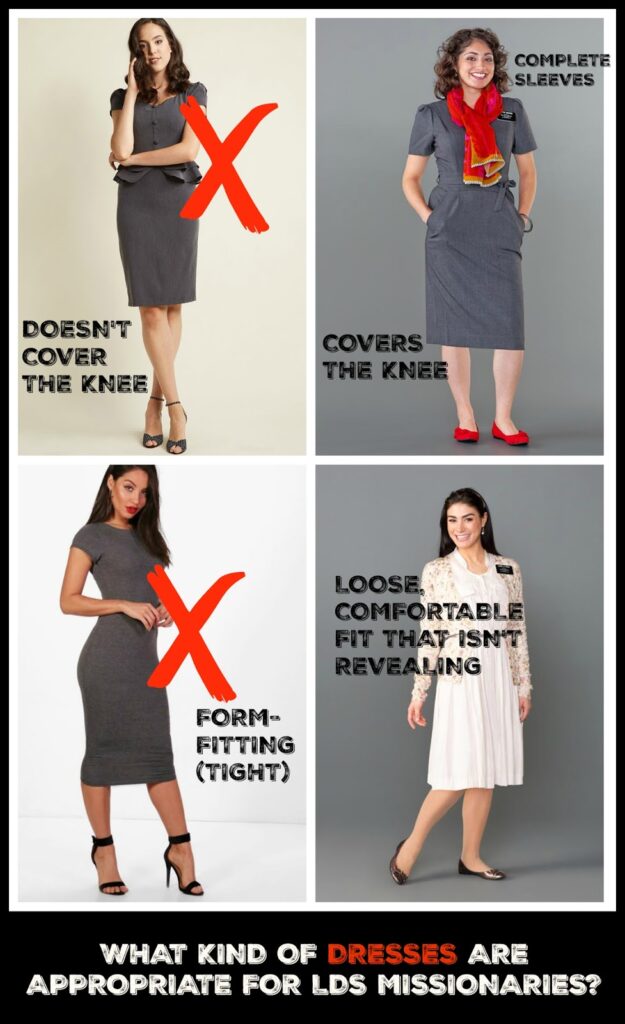
It didn’t take long for all that extra eating to catch up with me. I soon found myself outgrowing all the clothes I brought to the mission. I wanted to keep the weight gain in check, but I was at a loss as to how to do it. I wasn’t the only one concerned with weight gain either. As much as the church insisted that we eat, the mission president’s wife also counseled the sisters to not have seconds at dinner and advised us to try to stay at a ‘healthy weight.’ Nearly all of the sisters voiced concerns over how much weight they were gaining. As a result of this hyper awareness, sisters were always trying to diet, with varying results. There were times we’d try to recreate Weight Watchers meetings. We would keep track of what we ate in journals and show them to each other at the end of the day, and once a week we would weigh ourselves and tell each other if we’d lost or gained weight that week. While it was nice to have the support of other missionaries, I couldn’t help but feel that I was letting them down if I struggled. What we ate always seemed to be at the center of what we talked about, and I grew weary of it. I eventually gave up and stopped dieting.
Even though I couldn’t always control what I ate, I was determined to keep exercising. We were expected to be up at 6:30 am and exercise for thirty minutes. That wasn’t enough time to get a good workout in for me, so I sacrificed sleep. I began getting up an hour early and running with another sister serving at the Liberty Jail. I loved getting to know this sister better, and we had great conversations during those early morning runs. But it was difficult to keep it up long term. We often had training meetings in the mornings we had to get back for, or there were times we were just too exhausted to go. I also kept getting injured and it would take longer and longer to recover. I finally just gave up trying, again.
As my mission wore on, my weight crept up and depression set in. I tried to channel the happy, optimistic missionary I was when I’d arrived, but she was feeling further and further away from me. A journal entry from that time reads, “I feel like Heavenly Father is so upset and disappointed in me and I don’t know how to fix it. I feel like such a downer. Everyone’s always asking me if I’m okay so that makes me feel like I’m not. I feel depressed so I eat all the time and that makes it worse. Every day I resolve to do better and I just don’t. All of my flaws and weaknesses are on display and I’m sick of being told what to do better and what to work on. I’m just tired. I just want to be a good, happy missionary, but it’s eluding me right now. I feel like there’s a weight, pressing down on me, holding me back. But enough of my whining. I’m really okay.”
Every time I would feel down I would circle back to the resolution to just stop whining. I would make myself be okay. I was convinced I could work my way out of my funks on my own, through more prayer and scripture study. There were rumors of sisters who had to take medication or meet with therapists to deal with their depression. I didn’t want to be one of those sisters, so I kept my feelings to myself and tried to put on a smile, like Sister Baxter said to do.
And not all of my mission was drudgery. There were many times I felt truly happy. Midway through my mission I was transferred to Kansas where I was a full-proselytizing sister, which meant I didn’t have to give tours and could focus solely on missionary work and finding new people to teach about the church. My companion and I got along great. I was enjoying myself regularly, beating back my depression, until…my skin began to break out. Not just a few pimples like I had in high school, but severe acne that covered most of my face.
I was horrified. I had never had to worry about acne when I was a teenager; why did it have to happen when I was in my twenties? And when everything else about my appearance had gone downhill? My weight continued to go up and I felt frumpy in my new, bigger clothes. We rarely had time to go to the salon, not to mention the money, and so my hair hadn’t been cut or colored in months. I usually wore it up anyway, because of the heat and humidity.
I tried everything I could think of to get rid of the acne-expensive face-wash, more make-up, and cutting out grease. Nothing helped. At dinner one evening, a member of the local congregation who had invited us to dinner excused herself for a minute and came back with a package of face wash for me. I didn’t bring up my acne or ask for suggestions. I was humiliated that it was bad enough for her to offer help without being asked. It was just one more thing for me to feel self-conscious about.
I eventually returned to Liberty to finish my mission and was called to be a sister leader. Because there were so many sisters in my mission, two sisters from each visitor center were called to be leaders over the other sisters in the Visitor’s Center. We were supposedly on the same level as zone leaders, our male peers who had the priesthood, but without nearly as much authority or autonomy. Even though we had to report to our district and zone leaders, and were never in charge of any male missionaries, it was still a unique opportunity for leadership that most sisters never get to experience. We were able to go to zone leader meetings with the mission president and other leaders from the church. We also attended transfer conferences where we met with the president to discuss which sisters to put in companionships.
I always felt nervous at these meetings, like I didn’t really belong. I consciously tried not to say too much or draw attention to myself for fear I would say something unintelligent. And it was always disheartening to see that the suggestions the sisters did make were rarely taken seriously anyway. I learned to just agree with whatever the men said. The only other women we saw on our missions, besides the other young sister missionaries, were the wives of the senior missionaries, and they were usually in charge of most of the cooking and housekeeping. It was obvious to me that in the future any contribution I had to make in the church would be as a supporting wife to my future husband, the one who held the real power.
When my mission eventually came to an end I was relieved, though going home brought on a new set of challenges that I wasn’t eager to face. I was thirty pounds heavier than when I arrived, none of my clothes fit, and my acne hadn’t cleared up. If anything, it was worse. At the beginning of my mission I’d enjoyed speaking in front of crowds. By the end I dreaded it. My self-esteem had made a complete 180.
And now I was supposed to date?
I definitely wasn’t ready.
The weeks and months following my mission were difficult. I repeated the cycle of dieting and obsessively exercising. The results were mixed. Some weight came off pretty quickly, but no matter how much I tried I couldn’t lose all of it. My acne improved, but never fully went away. In fact, I still have the scars. I was set-up on date after date, but they never went anywhere. To be honest, I didn’t want them to. I didn’t want anyone to see what a mess I was just under the surface.
I moved to northern Utah a few months after I got home to attend graduate school. I arrived there the summer before school started and I didn’t have a job or any friends yet. I would run or go to the gym most days, but I still felt horrible about myself. There were many days I would stay in bed and cry. I would look in the mirror and hate my body. This would be followed by intense guilt for feeling so negative, and I would double down on scripture study and prayer.
“…I feel like there’s a weight, pressing down on me, holding me back. But enough of my whining. I’m really okay.”
Things slowly got better and I regained most, but not all, of my confidence. I was happy to wear minimal make-up and chapstick, and not feel guilty about it. I also loved having autonomy and making my own decisions. The further away my mission became, the better I felt about myself. But every once in a while, the memories of guilt, shame, and unworthiness I experienced on my mission would come creeping back in. It became hard to look at pictures or talk to old companions and friends from my mission. Why did I feel that way about something that was supposed to be one of the happiest, most fulfilling times in my life? I couldn’t put my finger on exactly why I had such conflicting feelings when I thought back to my mission.
Some of the pieces started falling into place when I began educating myself about the pervasive nature of patriarchy and the unhealthy systems it creates. I learned the value of questioning power structures and not just accepting things the way they’ve always been. Most importantly I learned to ask the question “Why?’:
Why was it that only sisters were called to visitor’s centers? Elders could give tours and talk to visitors just as easily as sisters. Was it as simple as sexism? That women were thought to be more attractive? What would happen if the same emphasis on appearance was placed on the male missionaries and the same opportunities for leadership were given to the sisters? How would that change the dynamic of a mission?
I was questioning these structures, but it wasn’t until I read the book “The Beauty Myth” by Naomi Wolfe that I finally understood why exactly my mission had been so detrimental to my self-esteem. The beauty myth was the illusion I was chasing my whole mission—an unattainable, fictional version of the perfect sister missionary, the perfect woman. I had been told this woman was real. I believed she was real. And when I never measured up to her, it was myself I blamed. The beauty myth is a construct perpetuated by society, culture, and religion. It’s the belief that beauty is a currency, and the more you have of it the more valuable you are. But the definition of beauty is slippery. It could mean thin, white, young, stylish, or any number of ever-changing requirements. The trouble is that the attainment of these qualifications is temporary, so no woman is ever safe from becoming obsolete. The beauty myth pits women against each other as they compete “for resources that men have appropriated for themselves.” As Naomi Wolf puts it, “The beauty myth is not about women at all. It is about men’s institutions and institutional power.” She also writes, “The beauty myth is always prescribing behavior and not appearance.”
How did the beauty myth uphold men’s institutional power on my mission? And in what ways did it prescribe my behavior?
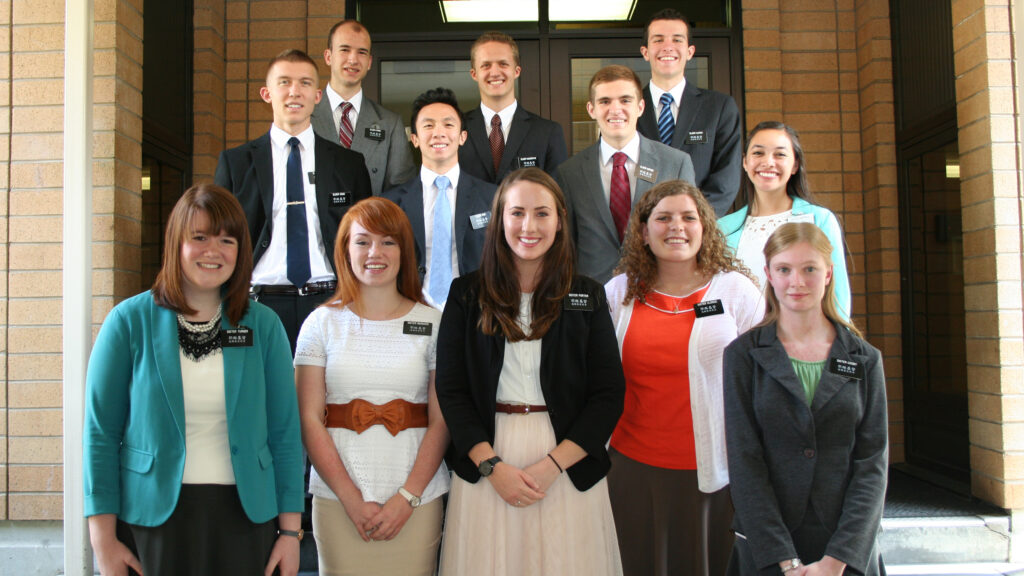
The more I learned, the more I recognized that a mission is really just a microcosm for how women are treated in The Church of Jesus Christ of Latter Day Saints as a whole. They are given the illusion of equality, but it always comes with limits. Sister missionaries, and women in general, are told, at least on the surface, that their contributions are equal to their male counterparts and they are vital to the organization. While they are elevated with their leaders’ words, they are simultaneously being corralled into their stifling gender roles. For example, while a mission is basically a requirement for men, it is only an option for women if they can’t get married. Women are also only allowed to serve for eighteen months, as opposed to the two years for men. I don’t know the real reason for this, but I assume it has something to do with getting the young women back on the marriage market.
Additionally, sister missionaries can never aspire to any real leadership, and neither can women in the church. They have to watch the elders become district leaders, zone leaders, and assistants to the president, while the most advancement sisters can hope for is to reach ‘senior companion’ (which means they are in charge of a companion that hasn’t been out on their mission as long). In my case, I was able to become a leader of a few other sisters, but still without any real authority. Sister missionaries instead are often placed under the leadership of a man who is less qualified or has been out on his mission less time. Likewise, women in the church can become leaders of children, young women, or other women, but they are always acting under the direction of male leadership. They can never be in charge of a congregation, and in some ways not even of their own families. They are always expected to defer to the priesthood, and it is only men who have the priesthood authority. The men of the mission are groomed to be leaders, to rise up the ranks of the church after their missions. The most women can hope for is to be a wife and mother, to raise the next generation of priesthood leaders. Sister missionaries were kept in a perpetually dependent and subservient position to men—a relationship that is meant to continue when they return home and marry.
This sets off a vicious cycle of women never feeling like they are enough and looking to the men in their lives for approval. This is because, very literally, women will never be enough. No matter who they are, what they achieve, what personal qualities they have, they will never be enough to be entrusted with the priesthood. Their value will never match or surpass that of a twelve-year-old boy. And in many, very real, ways priesthood leaders dole out approval to women. From determining worthiness to serve a mission, worthiness to get married, or worthiness to receive church assignments, it’s always the priesthood leader who acts as the intermediary between the women and God, who decides whether or not a woman has done enough to warrant approval.
And priesthood leaders let women believe in this mirage. They let women keep thinking that if they try hard enough, are pleasing enough, and obey all the rules perfectly, that one day they might have some real influence, that they might be taken as seriously as their male counterparts. But men and women all know, deep down, that it’s an illusion. It serves to keep women looking inward and downward, focused on themselves and what they lack, rather than questioning the system that sold them the lie of their scarcity in the first place.
And all women, sister missionaries included, survive under these circumstances while bearing the suffocating weight of the beauty myth. They are supposed to be pleasant, submissive, and gracious. They are expected to be humble yet confident, natural yet flawless, young yet mature. They can never complain or show any real fatigue. I can’t think of any situation less conducive to feeling attractive and physically fit than a mission. Yet that is where I felt the pressure the most. That pressure took my individuality, talents, and enthusiasm and turned them into conformity, timidity, self-doubt, and exhaustion.
And yet even today my feelings continue to be mixed as I reflect on my mission. I met people who greatly impacted me and I had experiences I’ll always treasure. I appreciate the sacrifice of my parents who paid for my mission and supported me every step of the way. But if there’s one thing I could change about my experience, it would be to tell my younger self that her value isn’t in relation to the men in her life. It’s not what she can supplement to the priesthood, but what she can create on her own, independent of supervision and approval.
I would tell her that she is enough, exactly as she is,
with or without lipstick.

Listen to the Episode
&
Share your Comments with us below!





